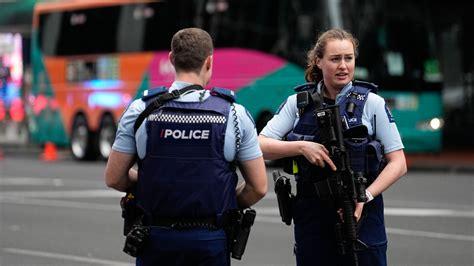
New Zealand spy agency says terror attack remains ‘realistic possibility’
A terror attack in New Zealand remains a “realistic possibility” over the next year as evolving global and domestic security trends continue to drive extremist sentiment, the country’s intelligence service said on Tuesday.
Following its annual review of the national terror threat levels, the New Zealand Security Intelligence Service (NZSIS) said people were getting exposed to an increasingly diverse range of violent extremist narratives through online networks, raising the risk of radicalisation and potential violence.
“An attack is a realistic possibility amid what is a deteriorating global security environment,” NZSIS Director-General of Security Andrew Hampton said in a statement.
There is no change to the national threat level, which has remained at ‘low’ since November 2022, Hampton said.
The NZSIS said it was severely concerned about the impact of the online networks on young people, “who are being exposed to and influenced by violent extremism in ways we haven’t seen before.”
A report published last week by the “Five Eyes” intelligence partners – Australia, the U.S., Canada, Britain and New Zealand – said they were increasingly concerned about the radicalisation of youth, and minors who support, plan or undertake terror activities.
The NZSIS said the most likely terror attack in New Zealand, the second-safest country in the world according to the Global Peace Index, will be by someone who acts alone.
A lone gunman armed with semi-automatic weapons targeted Muslims attending Friday prayers in two Christchurch mosques in March 2019, killing 51 people and wounding dozens, in the country’s worst peacetime mass shooting.
The report highlighted NZSIS’s concerns about the volume and accessibility of extremist views online and said the agency was aware of the impact it was inflicting on some communities, such as those affected by conflicts in the Middle East.
“There is now a growing threat from individuals embracing a fluid mix of ideologies, conspiracy theories and highly personalised grievances, who are fixated on violence, and whose intentions are difficult to assess,” the NZSIS said.
Source » reuters.com





